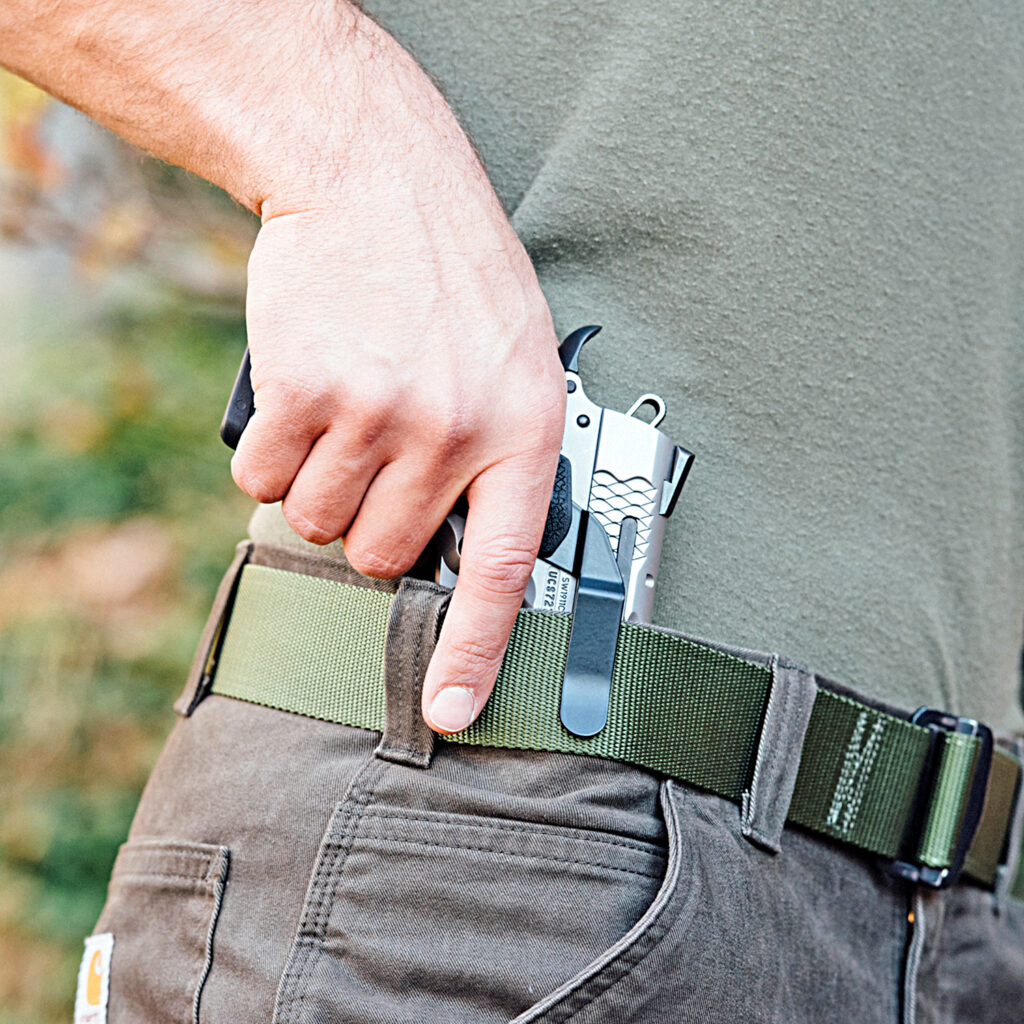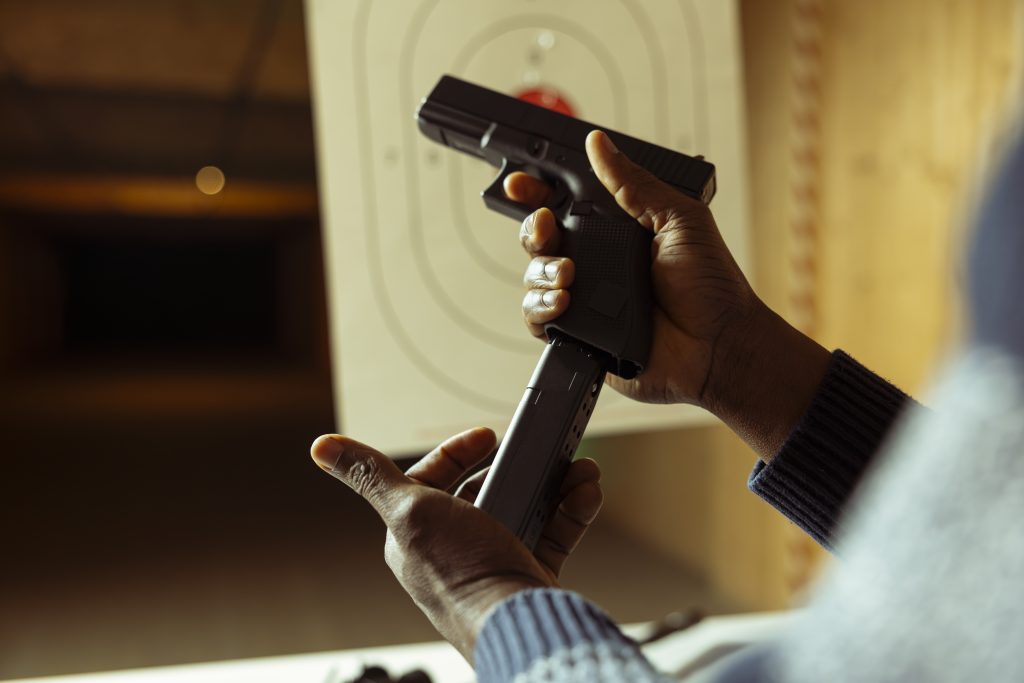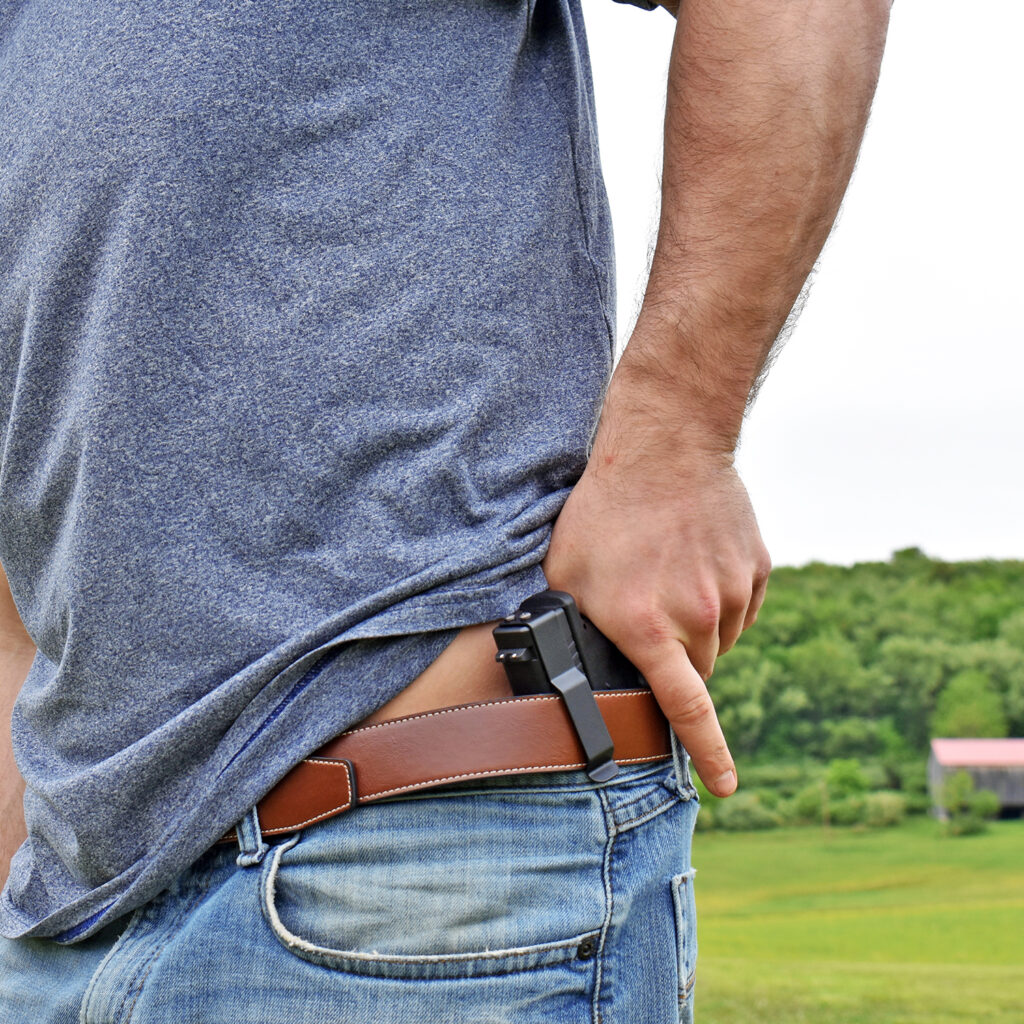When it comes to traveling with a concealed firearm, knowledge and adherence to the law are essential.
At Clipdraw, we understand the importance of responsibly exercising your Second Amendment rights while ensuring the safety of yourself and those around you.
Below, we’ll provide advice on what steps you should take to legally travel with firearms, drawing insights from authoritative sources like the U.S. Concealed Carry Association.
Understanding the Legal Landscape of Federal Regulations
Before starting your trip, we recommend familiarizing yourself with the specific federal regulations governing the transportation of firearms.
Enacted in 1986, the Firearm Owners’ Protection Act (FOPA) provides crucial provisions to protect the rights of firearm owners while traveling.
Under FOPA, individuals are granted certain protections, including the ability to transport firearms through states where they may be illegal under local law, provided that the firearms are unloaded and stored in a locked container inaccessible from the passenger compartment.
Understanding these provisions is essential for ensuring compliance with federal regulations and sets the foundation for a lawful and stress-free travel experience.
Preparing Your Firearm for Travel: Secure Transportation Solutions
Ensuring the safe and secure transportation of firearms is not only a legal requirement but also a fundamental aspect of responsible gun ownership.
When preparing for travel, investing in high-quality firearm cases and safes designed specifically for transportation is a necessity. These specialized cases offer features such as reinforced locks, padded interiors, and durable construction to safeguard firearms against damage, theft, and unauthorized access.
Additionally, travelers should ensure that firearms are unloaded and ammunition is stored separately during transport, as per FOPA guidelines.
Navigating State-Specific Laws: Research and Awareness
One of the most challenging aspects of traveling with a concealed firearm is navigating the patchwork of state-specific laws and regulations. Each state maintains its own set of laws regarding the possession, carrying, and transportation of firearms, creating potential legal pitfalls for travelers. To mitigate these risks, thorough research on the firearm laws of each state along the travel route is imperative.
To avoid legal pitfalls, conduct thorough research on the specific laws of each state you plan to travel through. Resources such as the USCCA’s state-specific guides offer detailed insights into the firearms laws of individual states, including information on permissible carry locations, firearm registration requirements, and prohibited firearms.
Performing this research before traveling can help ensure compliance with local laws and avoid legal entanglements while on the road.
Reciprocity Agreements
Interstate travel with a concealed firearm further complicates matters due to varying reciprocity agreements between states.
Reciprocity agreements determine whether concealed carry permits issued by one state are recognized and valid in another state, affecting travelers’ legal standing while crossing state lines.
To navigate these interstate complexities, individuals must familiarize themselves with the reciprocity agreements applicable to their concealed carry permits.
The USCCA’s concealed carry reciprocity map offers an invaluable resource for travelers, providing up-to-date information on reciprocity agreements across the United States. By consulting this resource, travelers can plan their routes strategically, ensuring that their concealed carry permits remain valid throughout their journey and avoiding potential legal issues.
Interacting with Law Enforcement: Educate Yourself on Proper Protocols
Encountering law enforcement while traveling with a concealed firearm can be a tense and anxiety-inducing experience.
Proper knowledge of protocols and effective communication strategies is essential to ensure a smooth and lawful interaction with law enforcement officers. When stopped by law enforcement, individuals should remain calm, follow officers’ instructions, and disclose the presence of any firearms in accordance with applicable state laws.
The USCCA’s “Duty To Inform” guidelines provide invaluable insights into the legal requirements and best practices for disclosing the possession of firearms to law enforcement officers.
By adhering to these guidelines and communicating respectfully and transparently with law enforcement, travelers can minimize the risk of misunderstandings and ensure a safe and lawful outcome.
Travel with Responsibility and Safety in Mind
Above all, traveling with a concealed firearm demands a commitment to responsible gun ownership, safety, and legal compliance.
At Clipdraw, we advocate for informed decision-making and adherence to the law at all times.
By staying informed about federal and state regulations, investing in secure transportation solutions, and practicing effective communication with law enforcement, travelers can navigate the complexities of interstate travel with confidence and peace of mind.
Want to enjoy more great articles and updates on concealed carry news and information?


